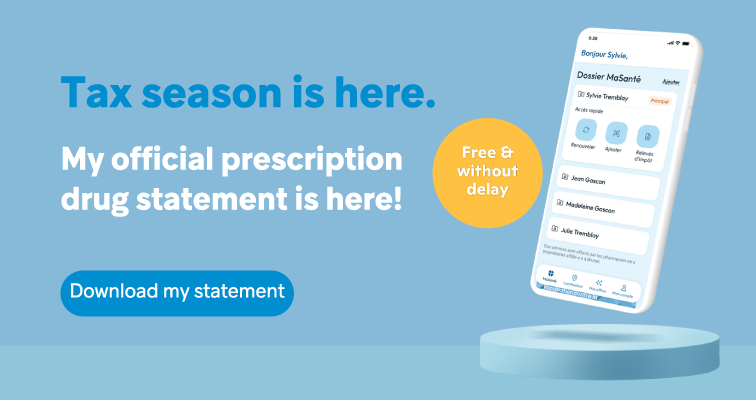Did you know that 50% of women and 30% of men aged 65 to 75 suffer from hypertension (high blood pressure)? Overall, one in five Canadians is affected. Recognizing the disease can help you minimize the consequences on your health.

What is hypertension?
Hypertension is characterized by high arterial pressure, that is, by the blood exerting too much pressure on the artery walls. For this reason, it is commonly called “high blood pressure.” This increased pressure causes damage to some of the blood vessels, leading to complications. When the values remain high permanently, we say the person suffers from hypertension, or high blood pressure. Many people suffering from this disease do not feel any symptoms, which is why one out of two people affected are unaware of their condition.
The consequences of hypertension are formidable. It can cause a number of health problems, some very serious. The organs most often affected are:
- the heart : heart attack, heart failure
- the kidneys: renal insufficiency
- the brain: stroke, dementia
- the eyes: retinopathy
Symptoms of high blood pressure
When hypertension does manifest itself, the symptoms vary from one person to another. However, they most often include:
- headaches
- visual problems
- dizziness or dizzy spells
- buzzing in the ears
- shortness of breath
- fatigue
- heart palpitations
- nose bleeds
- numbness or tingling in hands and feet
If you experience these symptoms, your blood pressure may be very high.
Blood pressure values
Your blood pressure is expressed by two results obtained by a device called a “sphygmomanometer,” also known as a “blood pressure monitor.” The first number (the higher value) indicates the pressure of the blood when the heart contracts to pump the blood through the blood vessels. This is called “systolic blood pressure.” The second number (the lower value) indicates the blood pressure when the heart is resting between two beats. This is called “diastolic blood pressure.”
Normal blood pressure values are 120/80 mmHg. Hypertension is defined by systolic blood pressure of 140 mmHg or higher or by diastolic blood pressure of 90 mmHg or higher. Above these values, treatment should be initiated. The person’s blood pressure will then be closely monitored to make sure it does not exceed these limits.
Risk factors
A number of factors may put you at greater risk for developing high blood pressure. You are considered at greater risk if:
- you are over 55 years old
- you are a North American of African origin
- you have a family history of high blood pressure
- you suffer from diabetes, sleep apnea or renal disease
- you are obese
- you consume large amounts of alcohol
- you smoke
- you are sedentary
- your diet is rich in salt and fat
- you are going through a lot of stress
Some factors may cause blood pressure to increase occasionally, such as:
- stress or anxiety
- strong emotions
- physical activity
- caffeine
- seeing a white lab coat
What should I do if have high blood pressure?
The first step in taking control of this disease is to establish a diagnosis. Although you can measure your blood pressure yourself or have it taken at the pharmacy, only a doctor can establish a diagnosis with certainty. If you notice that your blood pressure is too high, speak to your doctor right away. As well, don’t forget to go for regular medical check-ups. Your doctor will no doubt measure your blood pressure during the examination.
Once a diagnosis is established, you should set up an action plan with your doctor to bring your blood pressure values back to normal. To do this, you will very likely have to make some lifestyle changes, such as:
- losing weight
- quitting smoking
- engaging in physical activity
- reducing your salt and alcohol intake
- reducing your stress level
If these lifestyle changes are not sufficient, your doctor will probably want to initiate a treatment using medication. You must take it every day, as prescribed, in order for it to be effective. Note that it is not uncommon for more than one anti-hypertensive medication to be required to fully control blood pressure.
Your pharmacist can be of invaluable help and advise you on several aspects of managing your blood pressure. For example, your pharmacist can:
- inform you about lifestyle changes
- help you quit smoking
- explain the optimal and safe use of the medication
- advise you on ways to stick with your treatment
- help you monitor your blood pressure
Don’t hesitate to consult your pharmacist to benefit from his or her expertise!
If not taken seriously, hypertension can cause a lot of damage to your health. Fortunately, you can count on the knowledge and collaboration of the health professionals around you, including your pharmacist. Don’t let high blood pressure produce its insidious effects: learn to recognize it, and you will be able to rise above it!
